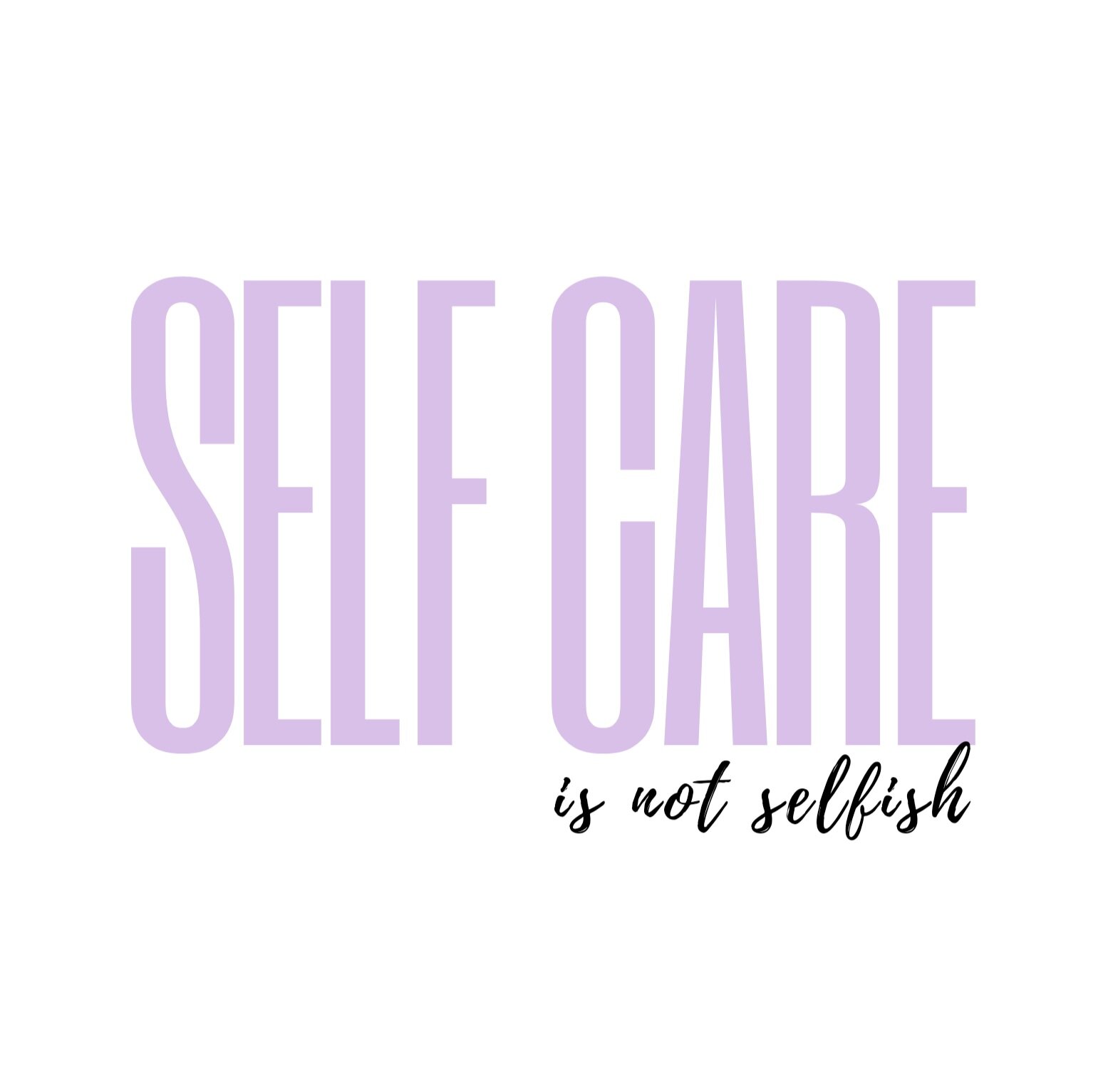Mental Health Awareness: How practicing self-care helped me to navigate depression
The sudden loss of a parent, coupled with an unamicable divorce, pretty much left my self-worth at an all time low. Reaching mental health crisis and being hospitalised was a big wake up call. It opened my eyes to the extent of my self-neglect and how much I never priortised my mental health. I would never take a moment to check in with myself and ask how I was feeling. Instead I would ignore the warning signs and tell myself and everyone else that I was fine. I certainly would never take time out to recharge or give myself a break. And even when I did, I would consider it a rare treat or a selfish indulgence, not a necessity.
What is self-care?
Self-care is something I was introduced to whilst under hospital care and throughout therapy. It’s quite the buzz word but don’t let that trick you into thinking it’s just another passing craze. It’s not. Self-care is essential for our mental and emotional wellbeing. Self-care isn’t just about being pampered or treating yourself now and then when things get rough (although I maintain that a bubble bath works wonders!). Self-care is a practice that we do deliberately in order to take care of our mental, emotional, and physical health. Good self-care helps improve our mood and can help to reduce stress and anxiety. Self-care is a practice that supports our overall wellbeing and also improves our relationship with ourselves and others. It sounds quite simple, but yet so many of us do not practice good self-care.
Self-care is not selfish
We’ve all faced moments of stress and intense pressure in our lives. But how many of us simply try and muddle on through? How many of us come up with the excuse that we are too busy to take time out for ourselves? How many of us believe that putting our needs first feels selfish? I know I certainly used to fall into this way of thinking. I never wanted to let people know I was struggling, especially at work. I was embarrassed to show any sign of weakness. I used think self-care meant treating myself to a day at the spa and I didn’t have time or the money for that! I never appreciated self-care was in fact a daily practice to help maintain good mental health. It took me a while to get used to practicing self-care. As I got better at recognising my moods, the more I got into the habit of practicing.
It’s important to look after ourselves and take time out to re-charge, especially when we have to take care of others. By taking time out for own wellbeing, we are then able to get back more energy in order to focus on others. ‘You can’t pour from an empty cup’ is one of the best expressions my therapist taught me. Running on empty is a habit we must break before it breaks us!
Ways I practice self-care
Here are some of my go-to practices when depression takes hold or when grief becomes overwhelming. Whilst these are personal to me, I hope they will demonstrate how self-care can help you maintain good mental health which is essential for all of us.
Self compassion
One of the worst things I did in the lead up to mental health crisis was to punish myself. I convinced myself that I was solely to blame for getting divorced. I convinced myself I had been a horrible daughter. I would let self-critical thoughts take over and never showed myself any compassion or forgiveness. I would put pressure on myself to get back to normal as soon as possible, telling myself that I should be feeling better by now and getting frustrated if I had a setback. The biggest lesson I have learnt is that healing is not linear. It is messy and complex. I have learnt to place trust in the healing process and accept that there will be good and bad days. And on those bad days, I practice self-care by showing myself compassion. I remind myself that I had to deal with two life changing and heart-breaking losses in quick succession. On the days when I am feeling low, I remind myself to give myself a break. I give myself permission to take time out in order to re-charge without feeling guilty. Sometimes I give myself permission to cry. It is important to know that it is ok to struggle and the last thing we should do is punish ourselves for it. Rest, recover and above all, be kind.
Gratitude
Gratitude is a practice what has really helped me to combat depression and grief, especially on the days that are particularly heavy. Gratitude helps me to truly focus on the here and now. It’s helps me to focus on what I have and recognise that my life is enriched with good things. I journal everyday and write down three things I am grateful for. Looking back at my early entries, I showed gratitude for what may seem like little things, but it is the little things that matter. Whether it was waking up to sunshine, savouring a delicious meal or simply being able to get out of bed, it all counts. I have never appreciated how fortunate I truly am. I grew up in a loving family. I have amazing friendships. A roof over my head. A body that keeps me healthy. A future with endless possibilities. On the days where the feelings of grief and heartbreak are overwhelming, I remind myself to focus on what I have instead of what of I have lost. Gratitude helps me to see the good in the bad days. I’m getting better at seeing the silver lining in most situations by practicing gratitude on a daily basis. Every day may not be good, but there is something good in the everyday.
Connect with nature
Taking daily walks in nature has been one of my go to self-care practices. By slowing down and taking time to soak in my surroundings, I have been able focus on living in the present moment. Being in the outdoors has allowed me to become more grounded and find those much needed moments of calm. By taking in all the sights, sounds and smells around me, I find I am able to combat racing thoughts and reduce feelings of stress. Being amongst nature is good for the soul and scientifically proven to improve our mood. Even if I just go for a short 20 minute walk, it helps me to refresh and gives me a much needed mental boost. Nature has this way of reminding me that I am bigger than my depression and my grief. It helps me to disconnect from those dark moments and brings me to a place of comfort and light.
Setting boundaries
A friend of mine told me that boundaries are what keep us safe. I think my mental health inevitably reached crisis because I never set myself boundaries. I so worried about being a burden or letting people down, that I would often put myself in situations that only exacerbated my anxiety and depression. I rushed back into work after being discharged from hospital because I didn’t want to let anyone down. On my return to work I had my first panic attack. As I lay paralysed in the back of my car struggling to breathe, I remember saying to myself “I can’t carry on like this anymore". Learning to say no and putting my needs first has been an essential part of my recovery. On the days where depression is heavy or where my grief is overwhelming, I make sure I don’t put myself in situations that will only do me harm. I have become better at cancelling plans or declining invites if I know I'm having a bad day. Those feelings of guilt are still there sometimes, but I remind myself I shouldn't have to explain myself to anyone when it comes to my mental health. Setting ourselves boundaries may be tough. Some may not like it either, but those who love and care for us should understand and respect our boundaries.
Mindfulness meditation
Meditation is a practice that has helped me to manage anxiety and racing thoughts. Meditation is not about being free from thought, that is not possible for anyone. Meditation is about focusing your conscious mind on your breath. Thoughts will inevitably creep in, and when they do, you simply bring your attention back to your breath again. Meditation takes practice and patience. I use guided mediations through the Insight Timer app , which has a free catalogue of thousands of mediations for different moods suited for all levels of experience. In those moments when I have felt overwhelmed or anxious, taking time out to meditate or simply focus on my breathing, even if just for 5 minutes, has really helped me to take back some control. Becoming more mindful has enabled me to acknowledge difficult thoughts and to get a better understanding of them. They are just thoughts, they are not fact. I now know that I am not my thoughts. I am the observer of my thoughts and I can choose how I respond to them.
How to make self-care a habit
The key thing to remember with self-care is that it should be personal to you and it should be a regular practice. When forming a new habit, start small and gradually build it into your every day life. ‘Self-care Sundays’ are a great way to start and can help you to commit to doing something for yourself once a week. Think of a time in the day you can set aside 30 minutes and challenge yourself to do that for 6 weeks. It’s also good to get into the practice of asking yourself how you are feeling and recognise when you are stuck in a rut. Acknowledging and accepting low mood or stress is key, as it helps us to break that cycle which can lead to burn out.
Thank you for reading my blog. Has self-care helped you to manage your mental health? Do you have any go to self-care practices? I’d love for you to share them in the comments. Please feel free to share this blog with others who may find this helpful.














Coping with grief on anniversaries or significant dates can evoke powerful memories and emotions. I share my coping strategies on coping with grief on anniversaries to help others facing loss and bereavement.